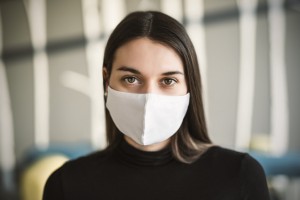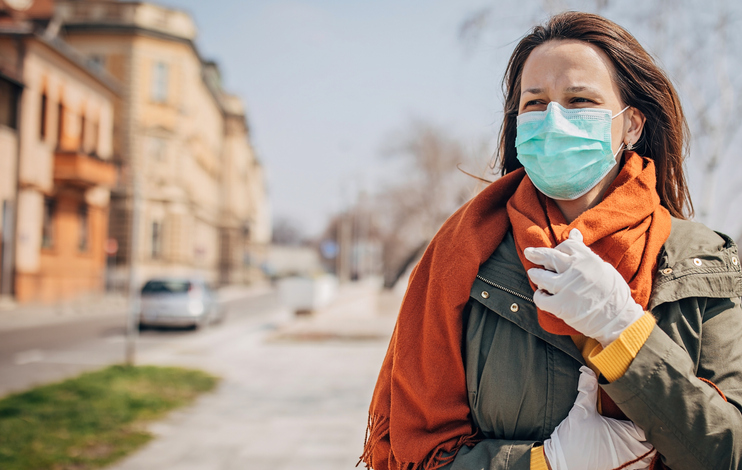Social workers tell us how they’re helping others
By Aliah D. Wright
Across the nation and around the world, social workers are continuing to help clients—despite great risk the pandemic poses to themselves and their families. The National Association of Social Workers (NASW) posed the question: Are you on the front lines helping people? Please share your stories.
Here’s how they responded:
Delivering Meals for the Needy
At Sandwich Public Schools in Sandwich, Mass., a team of social workers—Susan Coutinho, Connor Green, Todd Montgomery, Dianna Barbosa, Alyssa Pestilli, Rachel Darsch and Joe Dowick—launched a food pantry program providing food for students and the elderly.
“The social workers go into the community to deliver food and lunches as well as continue to do outreach to the students and families as they are navigating the challenges this presents to our schools,” said Dowick who is the mental health coordinator for Sandwich Public Schools. “After doing a community food drive we were able to secure a 27,000-pound donation of food products for our community from the Massachusetts Military Support Foundation along with many cash donations. The cash donations are affording the ability to provide fresh produce to go along with the staple items we are providing,” he told NASW via email.
Helping in Hospital Settings
Many social workers are working in hospitals treating patients who are isolated from loved ones. 
On Instagram, Mary Ellen told us “I work in an outpatient oncology clinic. The hardest part for me is not being able to touch my patients, hug them, or hold their hand. They can’t have visitors with them during visits or treatments, and for some patients that is really hard,” she said, adding “Human touch is so important. We take it for granted until it’s lost to us. I hold meditation sessions each morning and afternoon for the staff to help ease the anxiety and stress. It seems to help.”
She’s not alone. Rici Reid added, “Our patients are finding it terribly difficult not to reach out for a warm hug, one they are used to! It makes it especially difficult when their anxiety is elevated above their already anxious baseline. We are finding it equal as difficult not to be able to hug them or hold their hands during this already difficult time. We are still, obviously, starting new patients in both radiation and infusion and it’s a difficult conversation to let them know they can’t have their support person with them for their first round of either radiation or chemo.”
“I work in a hospital inpatient psychiatric unit for teens,” added Savannah Burts. “We are still trying to get telehealth up and running for psychology and SUD consults. Patients can’t visit with their OP therapists, only healthy guardians are being allowed to visit. Step down services are on hold due to the strict mandates in Washington and family conflict appears to be heightened.”
For Daniela Castillo, the worse part for patients is being alone. “The worst part is patients can’t be with their loved ones when they really need each other the most.”
Overcoming Fears
Samantha Calvillo, MSW, ACSW who works in an emergency room added, “Fortunately we have enough PPE for social workers, but I worry about what will happen to us when there aren’t even enough for nurses. I signed up for this job and am determined to make myself available for my patients, despite the risks. But I’d be lying if I said I wasn’t scared of what’s to come.”
For Dan Demauro it’s also hard. “I work in a federally qualified health center affiliated with a big inpatient and psych hospital that was the county hospital. I am a licensed clinical social worker working with a team of medical providers, nurses and other medical staff to support our patients with psychosocial impacts of Covid-19,” she said. “That includes some crisis, distress management therapy related to fear of illness and economic changes related to job losses, etc.”
On LinkedIn, Wendy Osinkosky, MSW who is a clinical social worker at Western State Hospital said, “It’s been a long two weeks (and counting) on a lockdown that prevents patients from visiting with their natural supports of family and friends. “[I’m] being creative where I can with Zoom, Adobe Connect conferences and patient/family/residential provider visits outdoors to insure social distancing. Inching forward on discharge plans for patients who are stable to create space for those in the ER waiting for psychiatric treatment. Supporting nursing staff by planning patient activities and increasing patient conferences. Hardest part is quarantining myself from family, not being able to hug my kids & having to visit my mom through a window pane barrier.”
Doreen Best, ASW, ACM-SW is a medical social worker in the emergency department at Sutter Santa Rosa Regional Hospital in California. She calls this time for patients ‘scary.”
“There are varying levels of acceptance, denial and anxiety amongst staff,” she wrote on LinkedIn. “We (Social Workers) are trying to get remote work accommodations as some people are getting sick and we need to preserve our health. The longer we can stay healthy, we can be available to support patients and their families telephonically or via Telehealth. We will also be able to ensure throughput/bed availability in order to prepare for the surge that is coming.”
Meanwhile, Buffy Sheff Ross, MSW, LICSW, who is a clinical social worker at Newton-Wellesley Hospital in Massachusetts says, “We are providing teletherapy to our ambulatory prenatal and postpartum patients. Our initiative is focused on perinatal mood and anxiety disorders. The social work role is providing therapeutic interventions and referral to community resources.”
And Amanda Wilbur, a clinical social work intern at The Grove Corner Counseling & Community Center in Riverside, Calif., says that in her hospital, “we provided iPads so that COVID-19 patients could video visit with their family.”
She says it is the social workers who tracks down families “and facilitates these virtual visits.”
NASW applauds all social workers on the front lines during these unprecedented times. For more information, visit socialworkers.org/covid19





